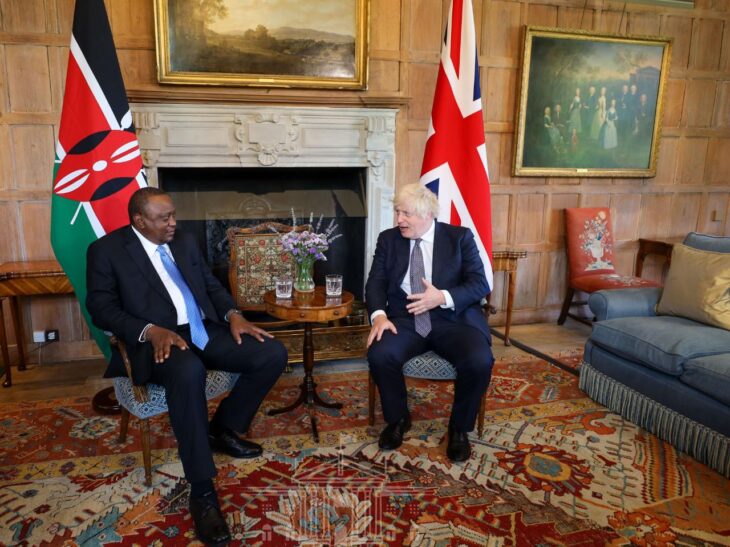NAIROBI, Kenya, Aug 5- President Uhuru Kenyatta recently returned from the United Kingdom in what is turning out to be one of his most successful foreign trips.
From the original mission to leverage multilateralism in support of quality and equitable learning opportunities for children around the world, Kenyatta also galvanized international consensus to support Kenya’s development agenda.
As the co-host for this Global Education Summit, President Kenyatta rallied world leaders to increasingly invest in education by embracing digital technology.
The US$ 4 billion raised at the event will enable over 175 million children to learn and grant another 88 million girls and boys access to school by 2025. This is a string demonstration of Kenya’s leadership in tackling global challenges through inclusivity and innovation.
This is particularly important in the context of COVID-19 pandemic that has pushed more vulnerable families around the world into economic difficulties that compromise the prospects for children from such households from getting quality education.
In a major boost for the Big Four Agenda, Nairobi inked deals valued at Sh20 billion that will see a number of projects spanning housing, energy and manufacturing sectors implemented.
The private investors now angling to set base in Nairobi will not only hoist the city’s bid to be the region’s investments hub while also creating job opportunities for Kenyans.
As more qualified but jobless Kenyans gain employment opportunities in the UK, Nairobi will be creating strong revenue stream through diaspora remittances while enhancing human capacity building through exchange programmes.
The deal opens a special window for Kenyan medics to tap into the UK healthcare sectors as expats. It was also great to see President Kenyatta promote Kenyan businesses in Britain that were engaged to supply various products and services during the Global Education Summit.
On the security front, the five-year Defense Cooperation Agreement that includes Sh1.165 billion annual UK investments in defense besides training of 1,100 Kenyan soldiers including on maritime security, will strengthen the fight against extremism and other trans-border challenges in the region. This is a major win for the peace and security pillar the Kenya’s foreign policy.
Kenya and the UK have enjoyed stable relations across a number of parameters. The UK is the largest European foreign investor in Kenya, with over 100 British companies operating in the country.
Similarly, London is Kenya’s second most important export destination. 27% of UK’s fresh produce demands and 56% of the black tea needs are met by Kenya. In terms of people to people exchanges, the UK is home to over 200,000 Kenyans while approximately 250,000 British nationals are permanent residents in Kenya.
On the backdrop of the global health crisis, Kenya and United Kingdom have had substantial success in joint efforts to contain the pandemic.
Nairobi participated in the successful trials of the Oxford AstraZeneca vaccine, through the Kenya Medical Research Institute.
As a key financier of KEMRI, London has also been a strong partner in Kenya’s response through targeted testing, and genome sequencing. During President Kenyatta’s trip, the UK committed to supply Nairobi with vaccines.
Kenya has since received an additional 410,000 doses of AstraZeneca vaccine from Britain effectively boosting the second phase of vaccinations against Covid-19.
Another 817,000 doses from UK are expected to arrive in Kenya through the WHO led Covax facility. These cooperative arrangements have positively impacted Kenya’s fight against the pandemic.
Nairobi’s economic partnership with the UK especially on development financing remains admirable with Kenya having cleared all direct loans owed to the UK last year.
Development aid has been a thorn in the flesh of many developing economies that have had to rely on expensive loans from bilateral and multilateral lenders to power their development programmes.
By drawing in both public and private investments from the UK, Kenya is setting a good precedent that should also define economic development cooperation with its other partners.
With the deals signed, it is time to get to the implementation stage. Some of the agreements such as the Defense pact will require parliaments of both countries to ratify in order to take effect.
Expediting such regulatory processes will shorten the wait for Kenyans to enjoy the beneficial proceeds of Kenya’s charm offensive in the UK.
Want to send us a story? Contact Shahidi News Tel: +254115512797 (Mobile & WhatsApp)


